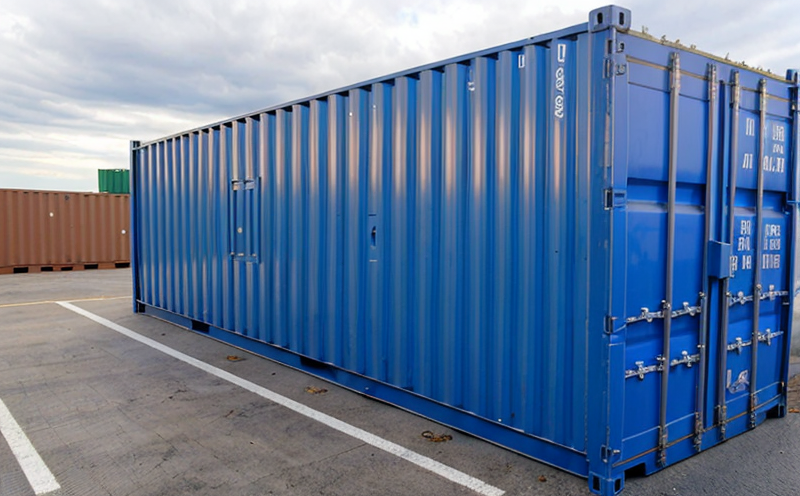ASTM D638 Tensile Properties Testing of Plastic Storage Items
The ASTM D638 standard is a cornerstone in the evaluation of tensile properties of plastics, particularly pertinent to storage and container items. This service is tailored towards quality managers, compliance officers, R&D engineers, and procurement professionals who need accurate and reliable data on how their plastic storage containers behave under mechanical stress.
Plastic storage containers are integral components across various sectors including packaging, medical devices, agricultural equipment, and more. Understanding the tensile properties of these materials ensures that products meet stringent performance requirements and safety standards. ASTM D638 provides a standardized approach to testing tensile strength, elongation at break, and modulus of elasticity, among other key parameters.
The test is particularly useful for identifying potential weaknesses in design or material selection which could lead to failures during use. For instance, in the packaging industry, ensuring that containers can withstand pressure without compromising on structural integrity is crucial. Similarly, medical device manufacturers need to guarantee that their storage solutions are robust enough not only to protect sensitive contents but also comply with regulatory requirements.
Our laboratory employs advanced equipment and techniques to adhere strictly to ASTM D638 guidelines. This ensures consistent results across multiple samples, providing a comprehensive understanding of material behavior under defined stress conditions. The process involves precise specimen preparation followed by rigorous testing procedures designed to simulate real-world scenarios where containers might experience force.
Understanding the tensile properties of plastic storage items is essential for optimizing product performance and ensuring compliance with international standards like ISO 178, ASTM D638, EN 1522, IEC 60601-1, among others. By leveraging this knowledge during design phases, manufacturers can make informed decisions about material selection and construction methods, ultimately leading to safer and more efficient products.
For our clients in the packaging sector, knowing the tensile properties of their storage containers helps in selecting appropriate materials that balance cost-effectiveness with durability and strength. This information is vital for ensuring that packages remain intact throughout distribution channels while protecting contents from damage or contamination.
In summary, ASTM D638 Tensile Properties Testing offers valuable insights into the mechanical performance characteristics of plastic storage items used across diverse industries. It allows manufacturers to innovate effectively within regulatory frameworks and improve overall product quality.
Applied Standards
- American Society for Testing and Materials (ASTM) D638 Standard Test Method for Tensile Properties of Plastics
- International Organization for Standardization (ISO) 178:2019, Plastic - Determination of tensile properties at room temperature
- European Committee for Standardization (CEN) EN 1522:2013, Plastics - Determination of tensile properties at room temperature
- International Electrotechnical Commission (IEC) 60601-1, Medical electrical equipment - Part 1: General requirements for safety and performance
Scope and Methodology
| Test Parameters | Description |
|---|---|
| Tensile Strength | The maximum stress a material can withstand before breaking. |
| Elongation at Break | The percentage increase in length of the specimen from its original gauge length to the point where it breaks. |
| Modulus of Elasticity | An indicator of stiffness, defined as the ratio of stress to strain within elastic limit. |
The ASTM D638 test method involves preparing specimens according to specified dimensions and tolerances. These samples are then clamped into a testing machine which applies uniaxial tensile load until fracture occurs. Throughout the process, precise measurements of force versus displacement are recorded.
Once testing is complete, detailed reports are generated summarizing all key test parameters along with graphical representations of stress-strain curves. These reports serve as valuable references for quality assurance teams and R&D departments alike. They provide critical feedback on material performance which can be used to refine designs or choose alternative materials if necessary.
It's important to note that proper specimen preparation is crucial in obtaining accurate results. Any imperfections such as cracks, voids, or uneven surfaces could significantly impact test outcomes. Therefore, our laboratory adheres strictly to ASTM D638 specifications when preparing specimens ensuring consistency and reliability throughout each testing cycle.
Competitive Advantage and Market Impact
- Precision: Our adherence to international standards ensures that results are consistent across different laboratories worldwide.
- Compliance: By providing data aligned with recognized industry norms, we help clients ensure regulatory compliance.
- Insightful Reporting: Comprehensive reports offer valuable insights into material behavior under stress conditions helping inform design improvements.
- Innovation Support: Accurate test results enable manufacturers to explore new materials and configurations confidently knowing they meet necessary performance criteria.
Our service plays a crucial role in maintaining competitive edge by offering reliable tensile property data that supports continuous improvement initiatives within the industry. Whether you're looking to enhance product durability, optimize manufacturing processes, or ensure safety standards are met, our ASTM D638 Tensile Properties Testing provides essential information necessary for informed decision-making.





